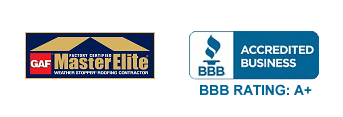
When a contractor begins work on a roof for a home or business owner, it is not only important that he or she have the right tools, materials and skills to complete the job. It is also crucial that a contractor ensure the safety of his or her employees so that no one is hurt. Home and business owners who hire a Houston roofing contractor should be sure that the chosen company observes standard industry practices to safeguard employees and avoid costly accidents.
While a home or business owner may not know much about roofing, there are some basic safety procedures that all roofers should follow in order to ensure that both employees and others on the property are safe. Most people injured on roofing jobs are the victims of falls, so it is very important for roofers to ensure that their employees have the proper equipment to prevent them from falling. A roof jack, for example, can help roofing workers move up and down on steeply pitched roofs without the danger of falling. For pitches that are not safe to walk on, a harness and rope system should also be in place in case a worker loses his or her footing.
A safe roofing contractor also considers people below the job site who might be walking by or standing on the ground.
The roofers from Houston Restoration Services of Houston would be happy to answer any questions you have about residential roofing or storm damage.
Hauling pallets of shingles, sheets of metal or blocks of tile up and down can be dangerous if the right equipment is not used. Therefore, a contractor should have access to a safe system that can stop a pallet from falling if it is dropped. Roofing workers should also never throw waste over the edge of a roof without being aware of who is standing below.
A home or business owner who is hiring a roofing contractor should become familiar with basic roofing safety techniques and ensure that the contractor and his or her workers follow these rules. Homeowners should also ensure that the roofing contractor is licensed and bonded. Licensing means that the roofing contractor has been approved by the state, and that he or she understands and follows the regulations imposed on the roofing industry by organizations such as OSHA. Bonding means that the roofing contractor has insurance in an amount sufficient to cover any injuries to his or her workers. A contractor who follows these rules, is licensed and bonded and provides the right safety equipment for workers is far more likely to maintain a safe working environment than one who does not.








